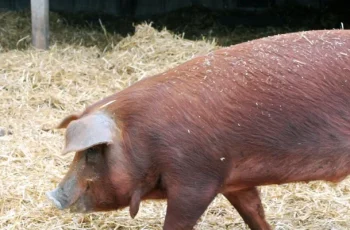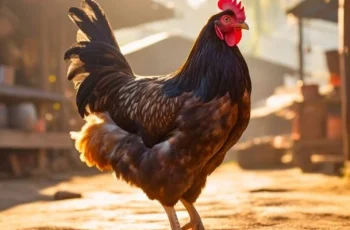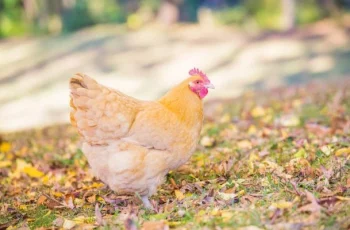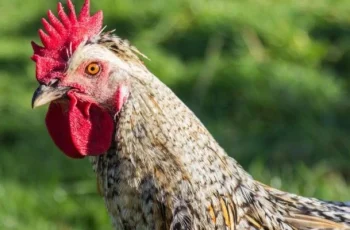Dominique Chickens: A Resilient Heritage Breed
Dominique chickens are one of the oldest recognized breeds in the United States, known for their resilience, dual-purpose capabilities, and striking black-and-white barred plumage. Originating from early European settlers, they were highly valued for their ability to endure harsh conditions and provide both eggs and meat. By the mid-20th century, the breed faced near extinction but has since experienced a resurgence thanks to conservation efforts.

Historical Background
Dominique chickens were developed by early European settlers in North America. Selective breeding over time led to the creation of this hardy breed, valued for its adaptability and reliable production of eggs and meat. Officially recognized in the American Poultry Association’s Standard of Perfection in 1874, the breed’s popularity declined with the rise of industrial farming. However, with dedicated conservation efforts, Dominique chickens are once again appreciated by small-scale farmers and backyard keepers.
Physical Features
Dominique chickens are known for their distinctive “cuckoo barring,” similar to Barred Plymouth Rocks, but with a key distinguishing feature: the rose comb. This small, flat comb is more resistant to frostbite, making these chickens suitable for colder climates. With medium-sized bodies, hens weigh 5-6 pounds, and roosters 7-8 pounds, making them an ideal dual-purpose breed for egg and meat production.
Egg Production
Dominique hens are reliable layers, producing around 230 to 275 brown eggs annually. Known for consistent egg-laying even during the colder months, they ensure a steady supply of eggs throughout the year. Hens begin laying around 5-6 months of age, and with proper care, can continue laying eggs into their later years.
Meat Quality
While primarily valued for egg production, Dominique chickens also provide high-quality meat. Their slow-growing nature results in tender, flavorful meat that is firm yet rich in taste. Ideal for homesteaders, they provide a moderate meat yield, making them a sustainable protein source for families.
Temperament and Social Behavior
Dominique chickens are calm and docile, making them great for families with children. Their social nature allows them to integrate well into mixed flocks, and they tend to avoid aggression. They are natural foragers, reducing their dependence on commercial feed. Their alertness also helps them avoid predators.
Environmental Adaptability
Dominique chickens are highly adaptable to various climates. Their rose comb offers resistance to frostbite, but they can also tolerate warmer temperatures with adequate shade and ventilation. For proper housing, a secure, well-ventilated coop with nesting boxes lined with clean bedding is essential. Free-range environments or outdoor runs enhance their well-being and productivity, though protection from predators is crucial.
Health Considerations
Known for their hardiness, Dominique chickens are relatively low-maintenance. Regular health checks are important to ensure their well-being. A balanced diet with sufficient protein, vitamins, and minerals supports their growth and egg production. Routine inspections for common poultry ailments are necessary, and a clean, dry coop minimizes disease risks.
Breeding and Sustainability
Dominique chickens reproduce naturally without artificial intervention. Hens are known to go broody and are attentive mothers. Maintaining genetic diversity while selecting birds with desirable traits ensures a sustainable flock. Supporting heritage breed conservation programs and responsible breeders helps secure the breed’s future.
Why Choose Dominique Chickens
Dominique chickens are a well-rounded breed suitable for various purposes—egg production, meat, or as friendly companions. Their calm temperament, reliable egg-laying, and adaptability to different climates make them a practical and rewarding addition to any flock. Keeping these chickens also helps preserve an important part of American agricultural heritage.

Conclusion
Dominique chickens remain a valuable breed due to their historical significance and practical benefits. Their hardy nature, ability to thrive in different environments, and strong foraging instincts make them low-maintenance yet highly rewarding. Whether raised for eggs, meat, or as pets, they are a testament to the enduring value of heritage breeds in modern agriculture.



